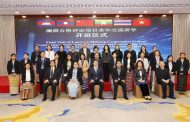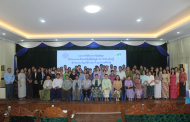“How Accreditation Improves Food Safety” is the topic of this year’s World Accreditation Day which is celebrated on 9 June each year. This year, the importance of accreditation to ensure food safety and quality is being illustrated in detail.
Besides metrology and standardization, accreditation is an important pillar of the quality infrastructure of an economy. It confirms that accredited conformity assessment bodies such as calibration and testing laboratories, inspection and certification bodies for products, management systems and personnel have the technical competence and impartiality to verify the conformity of products and services with relevant national and international standards and regulations.
Accreditation confirms the competence of a conformity assessment body to carry out well-defined conformity assessment activities. As a result, governments, industries and consumers can trust testing reports and certificates issued by accredited conformity assessment bodies. The purpose of accreditation is to increase confidence in certificates of conformity by formal recognition of the competence of a conformity assessment body to provide highly reliable services.
In globalized food retail chains, harmonized requirements and internationally agreed conformity assessment procedures are particularly important to ensure that food is safe, and that consumer protection is guaranteed.
Regular verification of the authenticity of raw, semi- and finished and even pre-packed products is therefore part of the food safety concept of regulators, but also of manufacturers, processors and distributors.
Accredited conformity assessment bodies are key players in the process to ensure that food is authentic and safe. Accreditation contributes substantially to food authenticity and safety. The brochures of the International Accreditation Forum (IAF)and the International Laboratory Accreditation Cooperation (ILAC)provide good examples which demonstrate the importance of accreditation to ensure food safety and quality. They also describe how reliable accreditation and conformity assessment services are guaranteed throughout the world.
As Germany’s National Metrology Institute, PTB shares its core competence and supports partner countries of German development cooperation in the comprehensive field of quality infrastructure.
PTB’s “Strengthening Quality Infrastructure in ASEAN” project supports ASEAN Member States to gear trade-relevant procedures of quality infrastructure to regional guidelines and international good practices, with a special emphasis on food safety, particularly in Cambodia, Laos and Myanmar.
Accreditation: Improving food safety






